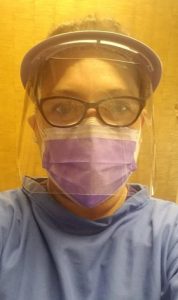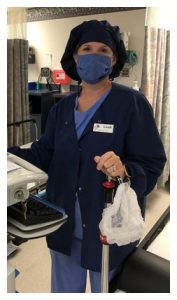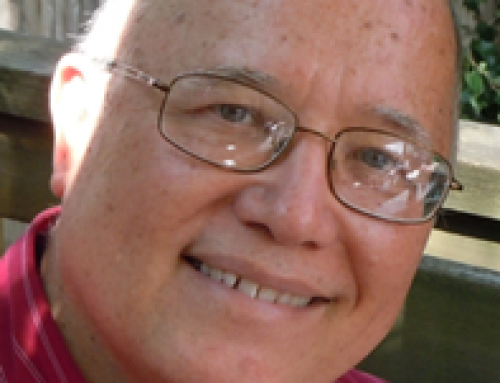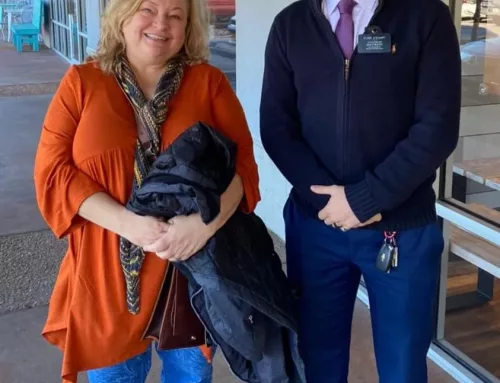Estimated reading time: 5 minutes
THOMASVILLE — Healthcare workers have by and large been the unsung heroes of the COVID-19 pandemic, providing medical support services during a national health crisis.
Two members of The Church of Jesus Christ of Latter-day Saints: Leah Smith, a registered nurse at Thomasville Eye Center in Thomasville and Tasha Odum, a dental hygienist in Cairo, recounted their experiences in providing health care during the pandemic.
Both are members of the Tallahassee Stake of The Church of Jesus Christ of Latter-day Saints, which includes congregations in Tallahassee, Thomasville, Cairo, Quincy, Crawfordville, Perry, and Madison.
Tasha Odum, dental hygienist
Tasha Odum recalled that “everything started to change” around March 20 for her office. “We couldn’t do cleanings for about eight weeks,” she said, adding that she typically does routine hygiene two to three days a week and assists the doctors two days a week.
“Though I mostly do hygiene, during quarantine I helped with patients who had toothaches, extractions, denture problems, abscesses, and so on. We continued to do emergency procedures and treatments for conditions that affect people’s overall health. We knew somebody had to help these patients.”
Odum praised doctors Mya Greenberg and Lumis Brown, with whom she has worked for more than six years, for choosing not to close when other area practices did. “The situation was concerning, yes, but we needed to be there. I admired the doctors for deciding to remain open. They did it carefully—they’re really good doctors.”
She noted that most staff members were not able to work during quarantine, but the office continued with a skeleton crew. They were gratified when patients from other—temporarily closed—practices came to them.
“We had a lot of people who were in pain and needed us,” she said, “and we were able to help them. That feels good.”
Asked what her office did differently during quarantine, Odum said doctors and staff sought diligently to reduce exposure for themselves and others.
“We wore gowns, face shields, and N-95 masks plus another mask on top—so we did double masking,” she said. “We also took extra measures to protect our families, such as removing office shoes before going home. And we took our lunches to work—we did not go out but worked straight through, so that everyone’s exposure was minimized.”
Summing up her experiences, Odum said that her office did everything possible to safeguard patients, employees, and the public—while considering it important to stay open and serve those in need. After all, she added, “I do hope people know how much dental health has to do with their overall health and wellness.”
Leah Smith, registered nurse
Working at Thomasville Eye Center, Smith uses her training as a registered nurse to help patients having outpatient eye surgery, such as cataract and glaucoma procedures.
But things changed for about seven weeks, from mid-March to early May, when her office was closed during quarantine.
“When there were emergencies, the full-time staff would cover them,” Smith said. “Our family had to quarantine due to exposure, but then I worked from home doing phone calls and patient reminders.”
She noted that carrying out her behind-the-scenes work was different but still fulfilling.
“It felt good to do my share during quarantine,” she said. “We were meeting patient needs before and after their surgeries. When we opened back up, the pace was slower, but it’s busy now and nearly back to normal.”
Explaining current changes wrought by the pandemic scare, Smith pointed out that painstaking efforts in cleaning and sanitizing are nothing new. But now there’s extra attention given to certain details, like minimizing touching and doing temperature checks at the front door.
“We wear masks all the time and, in every area, now, not just in the operating room,” she said. “In addition, beds are spaced further apart, with not as many patients in pre-op and post-op at once. Patient family members wait outside during procedures, and we go outside to give them post-op care instructions.”
So, while the pandemic has brought special challenges, Smith indicated her readiness to meet all demands. What matters, she said, is the reward of being a nurse on the “front lines.”
“All this makes you proud to be a nurse in the healthcare field. It’s why I went into it—to be there for other people and do my part to help them.”








